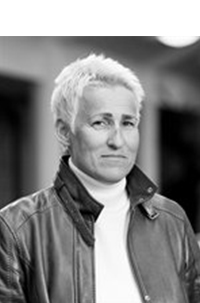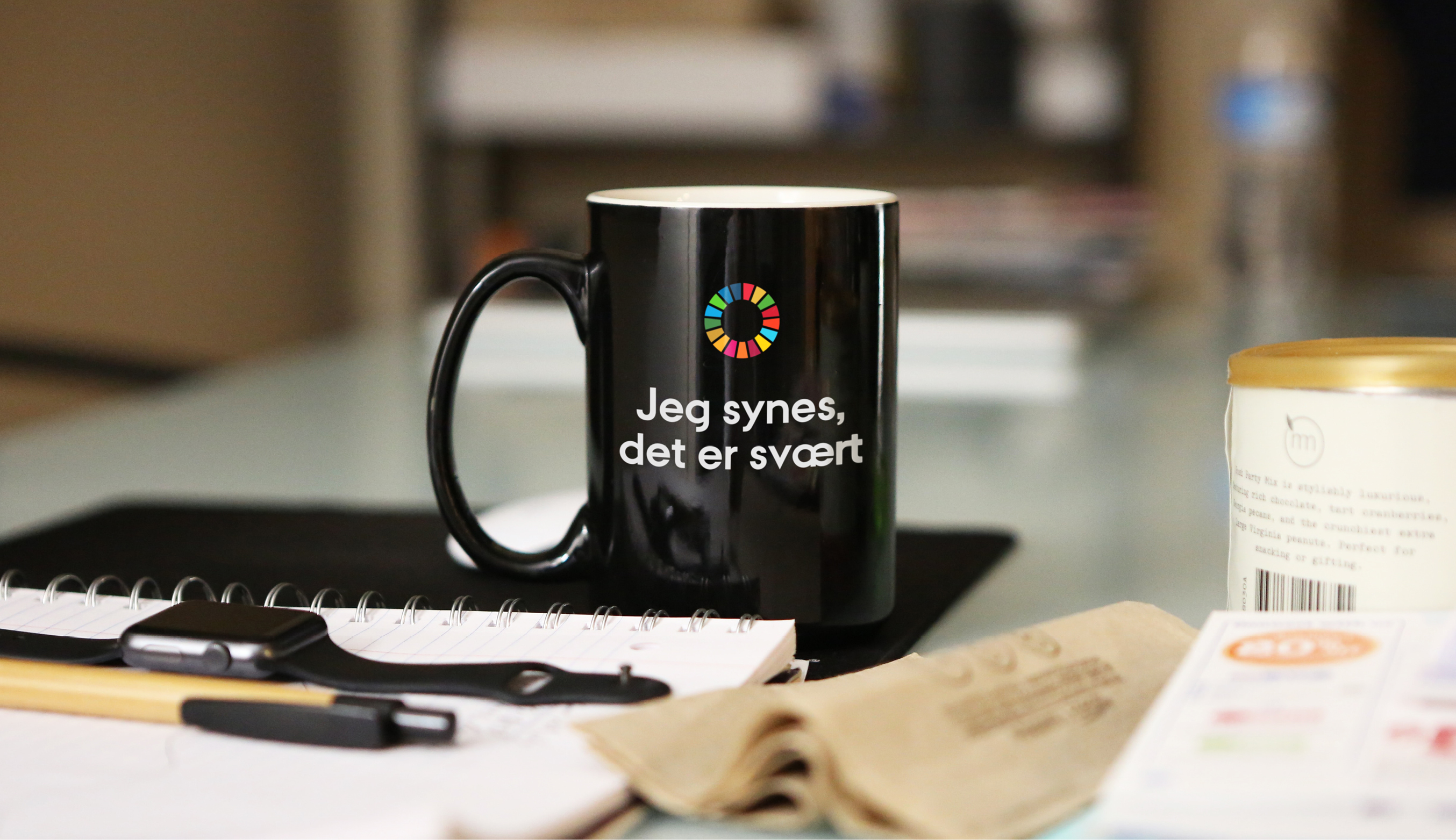Many political agendas come and go, but the entire sustainability agenda contained in the UN’s 17 Sustainable Development Goals is here to stay, says Professor Mette Neville, the Centre for Small and Medium-sized Enterprises at Aarhus BSS.
To find a way forward which is good for business and for the planet is especially difficult for small and medium-sized Danish enterprises (SMEs) which make up 99% of Danish business and industry*. An analysis from the Danish Chamber of Commerce** shows that many SMEs are not working with the goals at all. It also reveals that there are ‘significant differences between how much companies with either more or less than 250 employees know about the UN’s Sustainable Development Goals and to what extent they are actually working with the goals. At the same time, only 28 per cent of companies already working with CSR include innovation and business development in their efforts. This is striking because this is where working with CSR can be linked to the business. And due to the Danish business structure, SMEs play a particularly crucial role in our contribution to the UN’s Sustainable Development Goals.’
Demands from all sides
“Many political agendas come and go, but the entire sustainability agenda contained in the UN’s 17 Sustainable Development Goals is here to stay, and SMEs need to respond to the new agenda because the demands come from all sides. Consumer behaviour is changing with consumers increasingly demanding a choice of sustainable alternatives. On one hand, this creates new business opportunities, and on the other hand, failing to respond to the sustainability agenda may threaten companies’ competitiveness. Companies in the B2B sector are also facing increasing sustainability requirements. Many large companies are already working strategically with the goals and are placing demands on their subcontractors who are often SMEs. The municipalities’ procurement policy must also increasingly support sustainability. Sustainability even plays a role in terms of recruitment because young people want to identify with a company’s values and feel that their work makes a difference. The Sustainable Development Goals are therefore also a part of the war for talent,” says Professor Mette Neville, Centre Director at the Centre for Small and Medium-sized Enterprises, Aarhus BSS.

"Companies may definitely benefit simply from talking about what they are already doing in terms of the Sustainable Development Goals, but under no circumstances should it seem like a greenwashing exercise."
Professor Mette Neville, Centre Director at the Centre for Small and Medium-sized Enterprises, Aarhus BSS
A birds-eye view
However, many SMEs find it difficult to get a grasp of the UN’s 17 sustainable development goals. They indicate that they find working with the goals an extensive and elusive task for a smaller business that mainly focuses on its operations.
If the UN’s 17 Sustainable Development Goals are to create value for the business, then management must take a bird’s eye view and analyse which of the goals it makes strategic sense to work with, and how. This is a difficult exercise for many SMEs. However, there are also other challenges.
“For example, if the company is looking to embark on goal number 12, which concerns responsible consumption and production, fulfilling the goal often goes hand in hand with the application of digital technology, and this in no way makes it easier. Our project ‘The SME board as a digital catalyst’ (see the fact box, ed.) shows that the board and owner-managers often find it difficult to work strategically with new digital technology. They lack knowledge of the new technology and have trouble analysing where digitisation can create the most value. These challenges have a direct impact of the company’s possibility of working with a number of the Sustainable Development Goals,” says Mette Neville and adds:
“On a positive note, many of the SMEs that digitise by using more advanced technology also work with business opportunities that are relevant in relation to the Sustainable Development Goals. They just do not always realise this.”
Facts - Project The SME board as a digital catalyst The aim of the project ‘The SMS board as a digital catalyst’ is to contribute to short and long-term growth by preparing SME boards for creating and anchoring a strategy for digital initiatives and innovation as part of their strategic management. The project is a partnership between the Centre for Small and Medium-sized Enterprises, Aarhus BSS, DTU Business, the Technical University of Denmark, Gejst/Studio and the Central Jutland Business Development Centre. The project is supported by the Danish Industry Foundation under the theme ‘New digital business models’. |
The "soft" goals
However, some Sustainable Development Goals are not primarily technology oriented. One example is goal number 8, which concerns decent jobs and a responsible workplace.
“We can see that many of the SMEs that we work with are already consciously or subconsciously working with what might be called the ‘soft’ goals. Companies might aspire to employ least 10 per cent staff who have been through tough times or they might assume a social responsibility in their community. However, SMEs often conceal their efforts because owner-managers often act with a view to do good and not to strengthen the company’s competitiveness. For that reason, many of them do not reveal their contributions to charity or display their efforts on websites etc. Some even openly state that it is not something companies should profit from. Others do not wish to stigmatise a group of employees. I do understand them, but at the same time, companies can really benefit from being open about what they are doing. For example, when it comes to recruiting new employees,” explains Mette Neville.
The analysis from the Danish Chamber of Commerce also suggests that companies do not see their actions as contributing to fulfilling the Sustainable Development Goals. When you ask the companies, six out of ten have very limited knowledge of the goals, but at the same time, research shows that although knowledge is sparse, three out of four companies are working with the Sustainable Development Goals as part of their core business – either consciously or subconsciously. In other words, many companies are working with the goals without realising it. This means that there should be lots of potential for more companies to make it part of their strategy to exploit the new market opportunities in the field.
No "greenwashing"
“Companies may definitely benefit simply from talking about what they are already doing in terms of the Sustainable Development Goals, but under no circumstances should it seem like a greenwashing exercise. Their efforts must be strategically well considered because companies must be able to walk the talk,” says Mette Neville and adds:
“It is also difficult for owner-managers to brand themselves on working with the soft goals. There has to be a fine balance between doing good and running a business. The other Sustainable Development Goals are less complicated such as goal number 12, which concerns responsible consumption and production. However as I said earlier, in this case companies may find it difficult to exploit the digital technologies that contribute to fulfilling the Sustainable Development Goals.”
Overall, it is very difficult for SMEs to divide the many goals and sub-goals into smaller bite-sized chunks. However, this is crucial for the company because consumers are demanding sustainable solutions and because B2B or B2B customers are placing increasingly higher demands on their suppliers. From a financial point of view, working with the Sustainability Development Goals can be crucial for the company’s growth, competitiveness and possibility of securing labour.
Due to the importance of SMEs adopting a strategic approach to the Sustainable Development Goals, the Centre for SMEs is developing a project aiming to increase the commitment of Danish SMEs towards the 17 goals and to prepare the board and management for working strategically with the goals. This includes their ability to understand, assess and make the right investments in specific initiatives and new business ideas that are relevant in relation to the new global agenda.
Notes:
1) https://www.danskindustri.dk/di-business/arkiv/nyheder/2019/2/smver-er-danmarks-vakstlokomotiver/
2) Alle ombord? Status på virksomhedernes arbejde med CSR og FN’s Verdensmål. Analyse nr. 14, 2019 - 22. februar (Dansk Erhverv)



